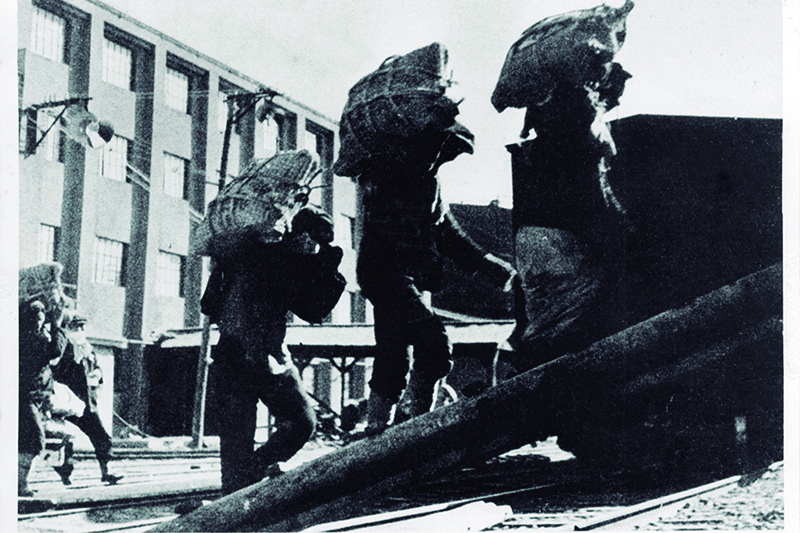Heungnam: A Turning Point

“One memory continues to linger in my heart,” wrote Rev. Dr. Sun Myung Moon in his book, Cheon Seong Gyeong. “When I was being taken to the labor camp in Heungnam, I had to trudge along a stream through a valley, chained to thieves. That memory is still so vivid.”
“I cannot forget the time we walked along that winding path in the valley,” he continued. “It left a strong impression on me. Those steps were heading toward a different world… Actually, that time was a good opportunity to come to a new realization about myself. That is why this memory stays with me.”
May 20 marks the 73rd anniversary since the late Rev. Moon, co-founder of Family Federation for World Peace and Unification (FFWPU), entered a labor camp in 1948 in Heungnam, an industrial city on the east coast of North Korea. There, he endured 29 harrowing months until liberation by advancing United Nations forces on October 14, 1950.
At the time, Rev. Moon’s burgeoning ministry ended when he was arrested for the second time by North Korean officials and transferred from Pyongyang to Heungnam. Liberation was by no means assured. As bombing of the Heungnam industrial complex became more intense during the Korean War, guards began executing prisoners, calling out their numbers starting with those having the longest sentences.
“My prisoner number was 596,” wrote Rev. Moon in his 2009 autobiography, As a Peace-Loving Global Citizen. “People called me ‘Number five nine six.’ On nights when I couldn’t sleep, I would stare at the ceiling and repeat this number to myself over and over. If I said it quickly, it sounded very much like eo-gul, the Korean word used to describe the feeling of injustice. I truly had been imprisoned unjustly.”
Rev. Moon shared how prisoners were ordered to write letters of gratitude to North Korean leader Kim Il Sung and study communist propaganda. “The Security Detachment kept a close watch on our every move,” wrote Rev. Moon. “The only way I could get away with not writing these letters was if I were the number one prisoner.”
Rev. Moon worked hard and served his fellow prisoners in any way possible, mending tattered clothing and sleeping in the most undesirable part of the cell near the toilet. His selflessness did not go unnoticed.
“Every year in the camp one person got the model prisoner award,” said Jung Hwa Pak, another prisoner at Heungnam. “[Rev. Moon] was selected for the prize because he did twice the work of normal prisoners.”
“Many people had visions and dreams and followed [Rev. Moon] in the prison camp,” he continued. “I asked the 15 group leaders [in prison] to work together to follow [him].”
Rev. Moon soon forged deep relationships with many prisoners. “Even in the hunger and cold of prison life there was warmth in sharing with people with whom I had an affinity of heart,” he wrote. “The relationships formed in Heungnam left me with 12 people who were both compatriots and as close as family to me, with whom I could spend the rest of my life.”
By 1950, as bombing from the war accelerated, conditions worsened at Heungnam.
“The night before my scheduled execution the bombs fell like rain in the monsoon season,” wrote Rev. Moon. “The bombing was so intense that it seemed all of Heungnam had been turned into a sea of fire. The high walls around the prison began to fall and the guards ran for their lives.”
“Finally, the gate of the prison that had kept us in that place opened. At around two o’clock in the morning of the next day, I walked calmly out of Heungnam Prison with dignity.”
Rev. Moon often spoke of his time at Heungnam as a turning point in his life and in God’s providence. Even in the midst of death, he took every opportunity to follow God’s standard and live for the sake of others while in prison. As we remember this difficult course, let’s follow Rev. Moon’s selfless example of loving and serving humanity each day.
You can learn more about Rev. Moon’s life in his autobiography available here.
Comments are welcomed and encouraged on this site, but there are some instances where comments will be edited or deleted. Please see our comments policy here.
